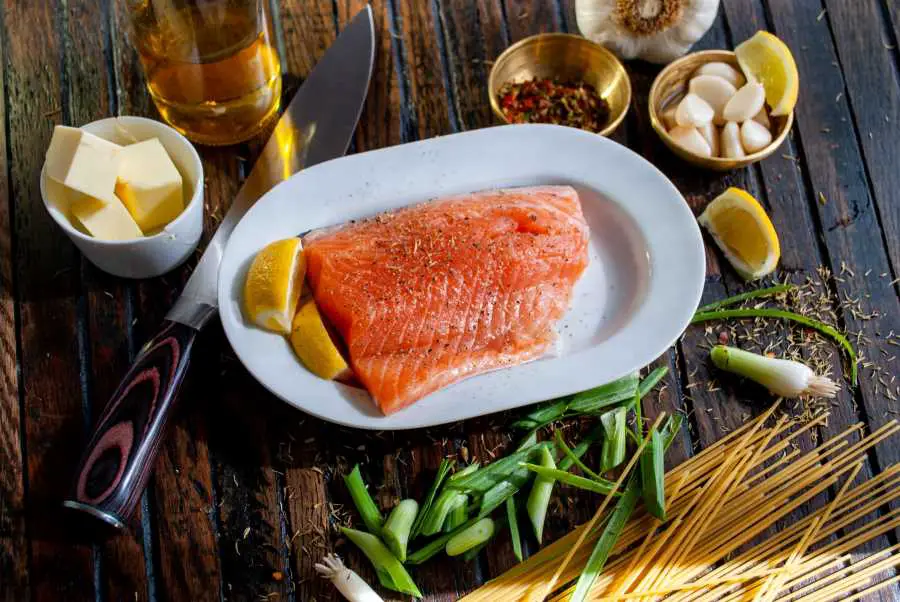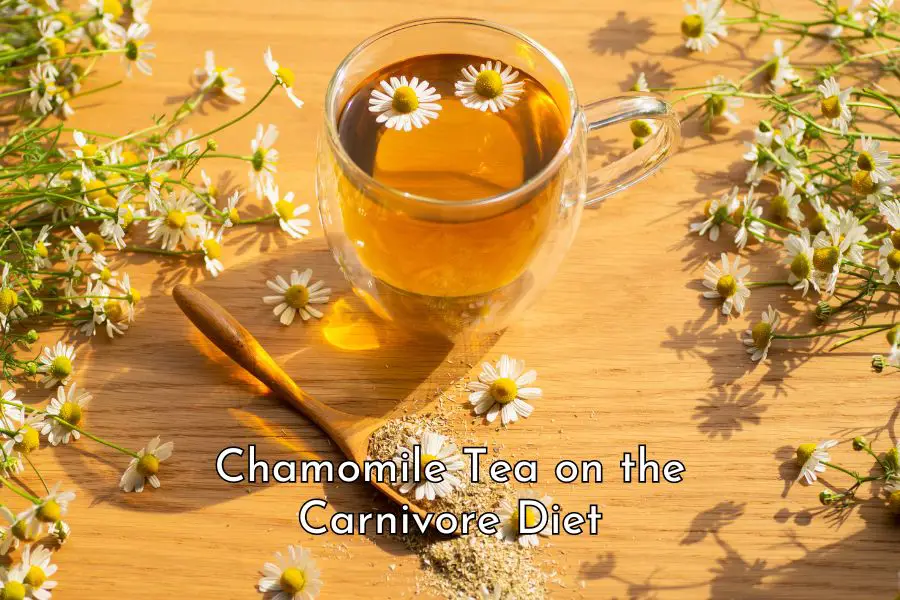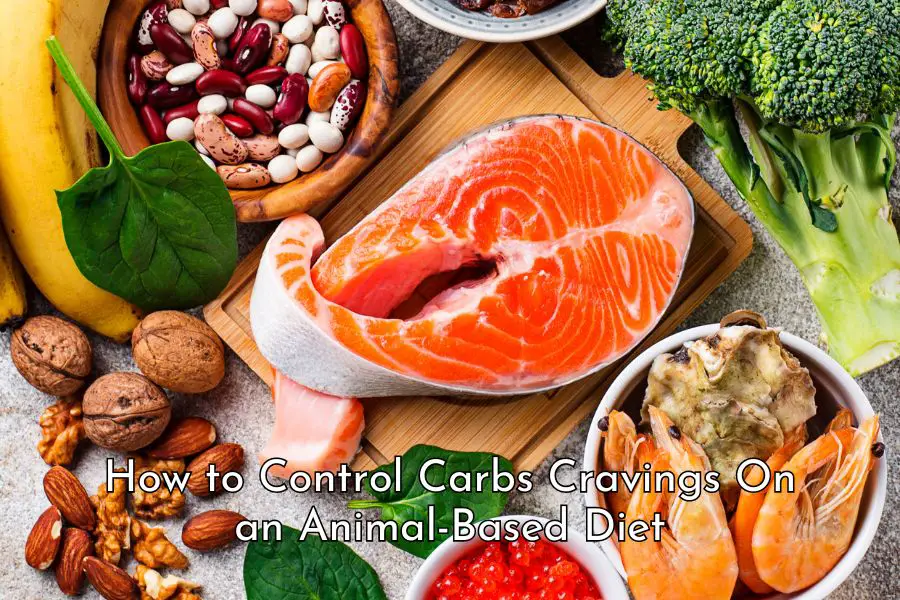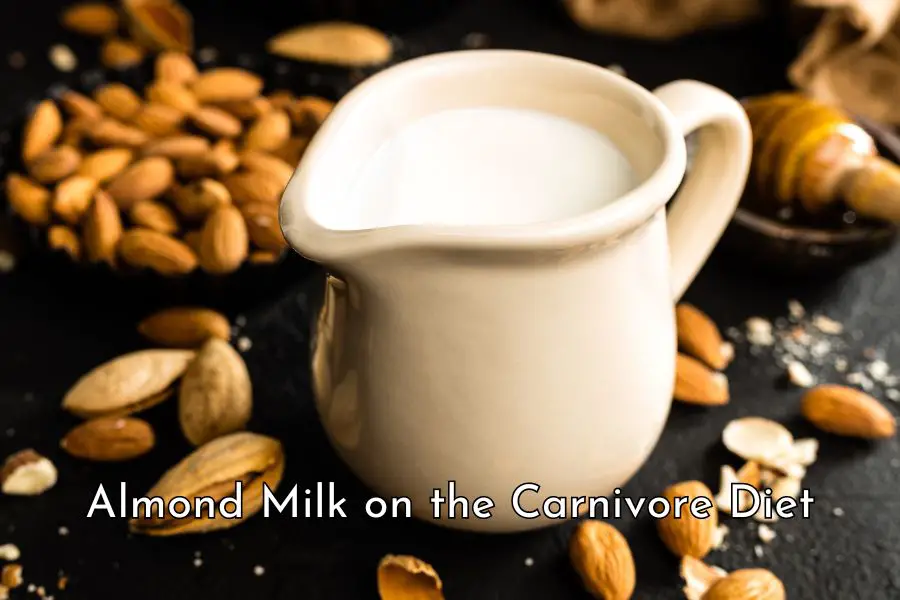Fish and seafood in general are widely known as a great source of omega-3 fatty acids and other nutrients such as vitamin A, vitamin D and calcium.
However, some people are concerned about pollutants and chemicals in fish and a question that naturally arises is whether one really needs to eat fish to get all nutrients for their body’s needs.
The answer is no.
Like other animal-sourced foods, fish is very nutrient-dense and is especially a good source of omega-3 fatty acids. However, if you are already eating nose-to-tail, you will get all nutrients that your body needs without the need to add fish to your carnivore diet.
Why you don’t need to add fish to your carnivore diet
Although fish and seafood, in general, are nutrient-dense, there is no nutrient in fish that you can’t get from beef, lamb, or eggs.
As can be seen in the table below, like other animal-source foods, common fish like salmon, tuna, and mackerel are high in proteins and good fats and are a good source of many essential vitamins, minerals, and other bioactive compounds.

However, all those nutrients in fish can also be found in ruminant meat and organs.
For example, the humble ground beef (see the table above) has all the essential nutrients that fish offers apart from vitamin A, omega 3 (low quantity in muscle meat), and vitamin D.
However, the “deficiencies” in omega 3, vitamin A or vitamin D all can be easily addressed if you practice eating nose-to-tail and get adequate sun exposure.
If you are to add a bit of organ meat like liver or brain to your diet, you can get plenty of vitamin A and omega 3 fatty acids in your diet.
Beef liver, lamb liver, chicken liver or pork liver are all very high in vitamin A and are loaded with many other essential nutrients.
Considered as nature’s best multivitamin, just a couple of slices of beef liver a few times a week should give you enough vitamin A plus a lot of other beneficial nutrients.

As you can see in the above table, beef fat, lamb brain or beef brain are also high in omega-3 fatty acids and you certainly don’t have to eat fish if you don’t like in order to get enough omega 3 in your diet.
It should also be noted that when it comes to omega 3 fatty acid intake, it’s not just the quantity that matters but the ratio of omega 3 to omega 6 is also very important.
When you don’t consume a lot of inflammatory omega 6, you don’t need to eat a lot of anti-inflammatory omega 3. [1]
Our ancestors are thought to have consumed a diet with an omega 3 to omega 6 ratio of approximately 1:1. [2]
Therefore, to mimic our ancestors’ diet, it’s good to eat foods with an omega 3 to omega 6 ratio as close to this ideal ratio as possible. Ruminant source foods like beef and lamb meet this criterion better than pork or poultry.
As to vitamin D, while some fish like salmon, sardines, mackerel, and herring are a good source of vitamin D, liver also has some vitamin D.
Sun exposure is also another great source of vitamin D, pure and absolutely free. I believe the risk of skin cancer due to sun exposure has been blown out of proportion. Why didn’t our ancestors die in droves from skin cancer if they were out in the sun all the time without sunscreen?
In summary, you can certainly get all nutrients for your body’s needs from ruminant-sourced foods as long as you are eating nose-to-tail.
There is even sufficient vitamin C in animal-sourced foods to prevent you from getting scurvy.
There are people on the carnivore diet who seem to have been doing fine with just steak days in and days out for many years. However, I wouldn’t recommend that.
We don’t yet know the long-term effect of such an extreme diet on human health.
But what we do know is that our ancestors certainly didn’t eat just muscle meat. They ate everything and they treasured odd bits that we often throw away these days like heart, liver, kidney, testes, bone marrow, and brain.
Should you eat fish on the carnivore diet?
It’s clear from the above that we don’t need to eat fish to get all the nutrients that our body needs.
However, if you enjoy fish or would like to add fish for variety, is it okay to add fish to your carnivore diet?
The answer is a definite yes.
As can be seen from the nutritional profiles of some commonly consumed fish above, fish and seafood are very nutrient-dense.
They are high in good quality proteins and good fats and are rich in a broad range of essential vitamins and minerals.
Fish is also a good source of omega-3 fatty acids. It is a lot easier and tastier for many people to get omega 3 from eating fish than eating animal brains or beef fat.
Adding a few servings of fish a week to your carnivore diet will help you meet all your nutritional needs easier if you are not yet ready for a true nose-to-tail way of eating.
What type of fish is best?
If you would like to add fish to your carnivore diet, the best fish to eat is wild-caught fish.
Wild-caught fish eat a natural diet, live in a natural environment, and are likely to be happier and healthier compared to farmed fish.
There is no doubt that our rivers and oceans everywhere are becoming increasingly polluted from our obsession with chemical usage.
Cosmetics, facial cleanser, shampoos, soap, detergent, oven cleaner, insect spray, weed killer, pesticides, insecticides, sunscreen, etc. will eventually get to ponds, lakes, rivers and oceans somehow and end up in the food we eat.
However, wild-caught fish will still grow up in much better conditions than farmed fish.
If you can only afford farmed fish, it is a good idea to limit your consumption to a couple of times a week or less often and avoid fish high in mercury.
It is estimated that today about half of all fish consumed worldwide are farmed and farmed fish are generally raised in poor conditions. [3]
Farmed fish are usually crammed in small enclosures that there isn’t much room for them to swim about. For example, salmons are housed in cages with 5,000 to 50,000 fish each. They are also treated with antibiotics and routinely injected vaccines. [4]
Salmon’s feed is also supplemented with vegetables, chicken, other land animals, and increasingly plant-based food.
Between 2000 and 2016, the Norwegian salmon aquaculture industry cut its shares of marine protein in feed from 33.5% to 14.5% and marine oils from 31.1% to 10.4%, and increased the shares of plant proteins from 22.2% to 40.3% and terrestrial oils from 0 to 20.2%.
Naylor et al (2021)
Due to the difference between their diet in the wild and what they are fed in aquafarms, the flesh of salmon turns grey color and so farmers use the colorings astaxanthin and canthaxanthin to dye flesh pink. Canthaxanthin has been linked to retina damage in humans. [5]
Other fish like rainbow trout, Atlantic Halibut, Atlantic cod all have drugs, chemicals, and pollutants in them. [6]
In summary, if you can afford good quality fish such as wild-caught fish or fish from quality aquafarms, you certainly can add fish to your diet as much as you enjoy. If not, keep your consumption at a minimum.
Conclusion
You don’t need to eat fish on the carnivore diet to get all the nutrients that your body needs if you have already been eating other nutrient-dense foods like ruminant meat, fat and organs.
However, adding fish to your carnivore diet can help meet your nutritional requirements easier if you aren’t into nose-to-tail eating.
If you can have access to good quality fish, eat as much as you like. Like other animal-sourced food, fish is super nutritious.
If you can only afford farmed fish, it’s best to avoid fish or eat it only sparingly.
Other posts you might be interested in:
Pork on the Carnivore Diet: Yay or Nay?
Are Eggs Okay on the Carnivore Diet?
Is Cheese Okay on the Carnivore Diet?
The Optimal Fat to Protein Ratio on the Carnivore Diet
Do You Need Supplements on the Carnivore Diet?
Disclaimer: The information in this post is for reference purposes only and not intended to constitute or replace professional medical advice. Please consult a qualified medical professional before making any changes to your diet or lifestyle.





